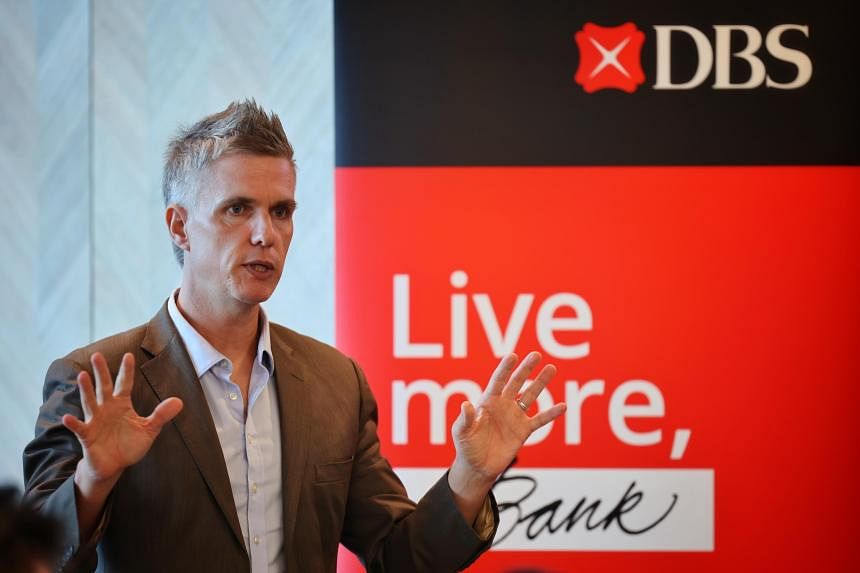SINGAPORE - DBS Bank is making strides in its green efforts, with sustainable financing commitments reaching about $70 billion as at end-2023, but more needs to be done, it said.
Its chief sustainability officer, Mr Helge Muenkel, said that the sustainable financing commitments, net of repayments, are an increase from $51 billion in 2022.
He added that the relative share of sustainable lending in the bank’s total book has also grown.
DBS also facilitated close to $18 billion of environmental, social and governance (ESG) bond issuances.
Sustainable financing refers to investments that take into account ESG aspects of a project. They include green loans that fund eligible green projects, sustainability-linked loans that incentivise firms to reach sustainability targets, and transition loans that help companies to move from being energy-intensive to become more green.
For example, DBS provided a $180 million green loan to Malaysian public sector pension fund KWAP to refinance a green office tower in Australia.
As part of its own sustainability efforts, the bank has also started materially phasing out its commitments in thermal coal power plants, said Mr Muenkel at a media briefing on March 5, ahead of the release of its sustainability report on March 6.
In 2021, the bank announced it will phase out thermal coal exposure by 2039, making it the first Singapore bank to cease financing in this area. DBS ceased financing of new coal assets in 2019.
It has progressively reduced its thermal coal exposure to $1.8 billion, down 19 per cent compared with 2022, and down 33 per cent compared with 2021, said the report.
Renewables financing also makes up about half of the bank’s power portfolio now.
Mr Lim Wee Seng, DBS Group head of energy, renewables and infrastructure, said the bank has legacy loans it committed to before it decided to stop financing coal-fired power plants. The last of such loans runs out by 2039.
Mr Muenkel added: “We are committed to phasing out thermal coal activities, but... just phasing out is not good enough. We need to do more. We need to look into how we can shut down at least a significant portion of the 5,000 coal power plants early, before the end of the operating time.”
But he noted that the challenge is that this is a voluntary effort, rather than being government-mandated.
“It is really, really complex. Even if you structure an early shutdown, how do you replace it so local communities have access to energy? How do you take care of people who are losing their jobs?” he added, noting that DBS is part of a coalition with the Monetary Authority of Singapore that brings together ecosystem players to look into the early phasing out of these power plants.
“If we don’t do anything, there’s no chance of reaching the 1.5 C (threshold),” he said, referring to the globally agreed target to limit global warming to within 1.5 deg C above pre-industrial levels.
DBS has also engaged over 1,000 small and medium-sized enterprises (SMEs) through sustainability training courses and programmes.
“It’s not only about financing with SMEs, (but) it’s a lot about capacity-building. It’s a lot about supporting the education and training. It’s also about data... So it’s actually a very comprehensive approach,” Mr Muenkel said.
He brought up the example of DBS partnering fashion retailer H&M to provide SMEs down the supply chain with technical help so they can use more energy-efficient equipment, or even turn to renewables. He added that the bank has set its targets and is on a journey to achieve them.
“The reality is it’s not going to be a straight line. It’s not going to be easy. There will be challenges. There could potentially be steps back where sometimes we are in a situation where emissions intensity goes up,” he said, citing the example of a scenario where the bank’s finance activities are considered “amber” rather than “green” but could become “green” given the right efforts.
“I wouldn’t want to just focus on year-over-year changes. This is a multi-year journey, and what we ultimately need to hit are the 2030 and the 2050 targets. But we’re making very good progress, especially on fossil fuels,” he said. The bank has set a net-zero target by 2050, with an interim target in 2030.
It has set decarbonisation targets in seven sectors: power, oil and gas, steel, aviation, automotive, real estate, and shipping. It is also increasing data coverage targets in the chemicals and food and agribusiness sectors.
For example, the 2030 target for power is a 47 per cent reduction in emissions intensity from the 2021 baseline and net zero by 2050, the report said.
Meanwhile, DBS is looking to reduce by 28 per cent the absolute emissions in the oil and gas sector that are attributable to the bank by 2030, and reach net zero by 2050.
This is DBS’ sixth sustainability report. The Singapore Exchange requires listed companies to produce sustainability reports, with climate reporting mandatory for those in the financial industry from the 2023 financial year.


